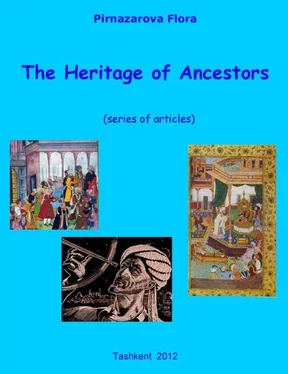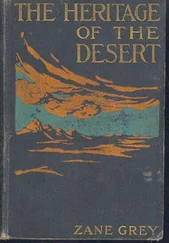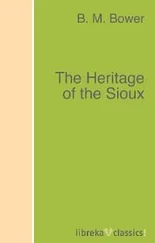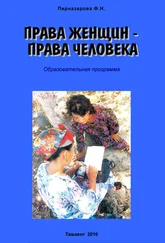In the beginning of the XX century French artist Paul Gauguin (1848-1903) while dying on the far island Tahiti is creating his last masterpiece – the painting "Where we have come from. Where we go. What for". At the same time Russian proletarian writer Maksim Gorkiy is proclaiming by the tramp Satin's lips in his novel "At the bottom" – "A HUMAN being – it sounds proudly!", hereby anticipating the extraordinary ascent of the human mind and intellect in the upcoming century.
Technical and informational evolution has not left women aside. The most significant revolution of the twentieth century is the change in women's status, as it was confirmed by the famous activist of women's movement Georgina Ashworth. Outstanding women – legendary Bella Abzug, the senator of American Congress, and Devaki Jain, an Indian writer and founder of the Asian women’s network DAWN – have published their mutual work "Women's Leadership and the Ethics of Development" (Women Watch, 1996), where they have first expressed seeming utopian idea that women can change the nature of power and transform the world.
Nowadays on the threshold of the third millennium again we ask a question: what is the meaning of the dignity of personality – of both man and woman?
Half a year ago in the Russian TV-show of A. Malakhov "Five evenings" on the subject of "The value of dignity" there was asked a question: "How much is the person's dignity and whether it is sold?" The statement of a question itself is very absurd in Uzbekistan, where cultural origins of the questions go far away to the past, and the national folklore is a proof for that. Thus, in Uzbek language there are many synonyms of dignity: nature of soul – fazilat, authority – tuturiq, prestige – obro’, ascendancy – nufuz, e’tibor, superiority – ustunlik, ortiqlik, advantage – afzallik, self-respect – izzat, honor, good name – sha’n, value, worth – qadr, characterizing the meaning of a personality for surrounding people, society. Therefore there are some proverbs used in Uzbek life, which are similar to Russian ones: "Keep the dress since it is new, keep the honor since you are young". "Fazilat – farzand kabidir" – "The honor is like a child, it should be protected and always improved" – this is said by folk wisdom from the collection of aphorisms "Gradually learning, gain the wisdom" (Mukhamadiev N., 1977, Tashkent). Dignity is not inherited by blood relationship, it is tender as a flower and brought up since the early childhood.
The origins of the word "Uzbek" is identified with the proverb: "O’ziga – xon, o’ziga – bek" (“He is his own khan, and his own bek”). Uzbek is the owner of his destiny – his life will depend on how he arranges it. This proverb contains an intuitive understanding of causal-investigator relations in the social phenomena. Folk wisdom is concentrated in proverbs and sayings collected for many centuries. Uzbek folklore is reach in proverbs on the subject of human dignity.
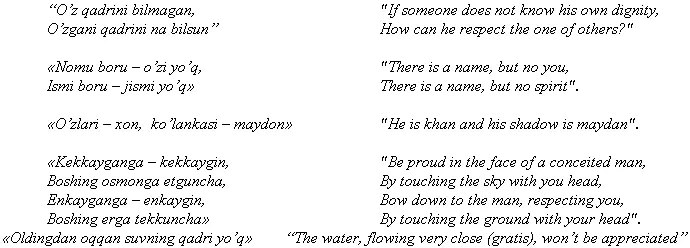
Dignity is beginning from the respect of the own personality. Makhtumkuli – the lovely poet of Khorezm and Turkmeniya, on whose poems there have been sung many songs (and written proverbs) for more then 250 years – was simply and clearly explaining the meaning of dignity:

As a Khorezm hafiz (folk-singer), the favourite of the whole Uzbekistan, Kamildjan Ataniyazov was singing:

If we refer to Uzbek linguistics, folklore, then the synonym of 'dignity' is the word 'value'. The widespread expression – to strengthen one's own dignity – “o’z qadrni o’tkazish” – literally means "to prove one's own value".
The value is proved not by the power of money, authority, arms or constraint, it is proved by moral, spiritual authority, demand by the closest surrounding and environment – family, cultural atmosphere, community, state, the nation finally.
Eastern and Western thinkers were emphasising the sense of proportion in the upbringing of the own dignity's perception. Great Uzbek classic Alisher Navoi 5 centuries ago was writing about measure and personality's dignity:
What is always respected in the world
What is called honour and dignity,
I would tell: these two stages are right,
But not to each extent are equal.
Render to the king and his army,
And in fact render to his dignity.
But if a khan shows obedience to slave,
He will put a lasso on himself.
You are bowing to a beggar, why?
It’s enough if you give him a dirham.
Don’t stand with a bow in front of the youth
Don’t humiliate your dignity.
Know how to carry the sign of your dignity,
And render everyone at their dignity.
Do not forget the duty of respect to the people:
With your coeval be temperate.
Do not show the excessive obeisance
And never insult by rudeness
There is wisdom in the golden aphorism:
The middle is the best measure in everything.
Know how to carry the mark of dignity
And reward everyone according to its dignity.
(A. Navoi, "Tumult of the righteous", 1485)
Self-respect is appearing and developing from the conscious of fulfilled promise or duty. A man looses himself as soon as he forgets his human Duty – to relatives, family, society and nature. In the fifth poem of the immortal “Hamsa” (“Pyateritsa” – “Five”). Alisher Navoi has observed this degeneration dialectics of even the outstanding person – the captain Iskander – whose prototype was Alexander Macedonskiy. "The war (is) for the war, for profit" – cruel and senseless not just for the beaten, but for the winner as well. Insatiable greediness of new conquests drives Iskander to Asian deserts and oceanic depths, resulting in the sudden illness and early death. Before the death Iskander ordered to leave his empty hand, protruding out of the grave, by this willing to express that even though he has conquered half of the world, he is leaving this life empty-handed.
That one, who is governed by the fire of greed,
Let he remember this beggarly palm!
(A.Navoi, “Saddi Iskanderiy” – “The Wall of Iskander”, 1474, Vol.7; “Fan”, Tashkent, 1968).
The sense of personality’s freedom is appearing only from the confident consciousness of fulfilled duty. Otherwise inevitable dystrophy of the own dignity realization, inferiority and as a result disharmony of personality, insensibility and loss of human reliability take place.
Birovkim aning himmati yo’q durur,
G’ani bo’lsa ham, hurmati yo’q durur
Those who lack the generosity,
Even if they are rich, won’t have a respect.
(A.Navoi, “The Wall of Iskander”, 1484 г.)
Friend, disown self-interest
As on the sowing, rely on generosity!
Be able to give, and far from the thought to take
And it’s better not to take, in order to give.
(A.Navoi, "Confusion of the righteous", 1484, vol.3, “Fan”, Tashkent, 1968, p.77)

In the collection of folk wisdom there is also mentioned about the passion for accumulation:
Читать дальше
